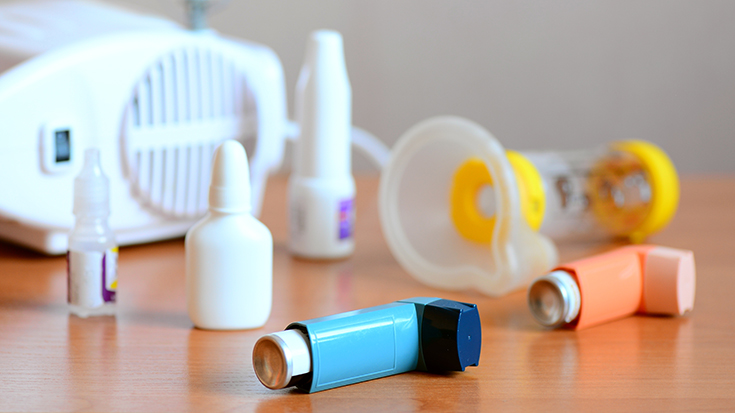
USPSTF Issues New Recommendation on Screening for OSA
In 2017, the U.S. Preventative Services Task Force (USPSTF) released a recommendation on screening for obstructive sleep apnea (OSA) that found there was not enough evidence to determine the benefits and harms of screening for OSA in asymptomatic adults.
To revisit the topic, the USPSTF commissioned a new systematic review to examine the balance of benefits and harms. The new recommendation reaffirms the 2017 recommendation and states that the evidence is insufficient to recommend screening in the general adult population.
The recommendation notes that while several screening questionnaires and clinical prediction tools identify people with OSA, they still need to be adequately validated in general populations enrolled in primary care settings. Potential harms from treatment range from oral and nasal dryness caused by positive airway pressure devices to oral mucosal, dental, or jaw symptoms associated with mandibular advancement devices.
The review looked at intermediate and long-term outcomes of treatment for OSA as well, finding mixed results.
The USPSTF suggests more research is needed to —
Evaluate the benefits and harms of screening health outcomes in screened vs. unscreened persons.
Assess the accuracy of screening tools, especially in people with unrecognized or mild symptoms.
Develop accurate risk assessment tools that can identify those populations most likely to benefit from screening.
Provide more data on the natural history of OSA, such as the rate of progression from mild to severe, the duration of time before progression, and the magnitude of benefit from earlier diagnosis and treatment.
The study was published by JAMA. Read More

A Cure for Airway Remodeling?
Researchers from the La Jolla Institute for Immunology believe they are on track to a potential cure for the airway remodeling typically seen in people with severe asthma.
The discovery centers around a type of inflammatory cytokine produced by T cells in the immune system when they overreact to environmental triggers. Called LIGHT, it has been found in the sputum of people with severe asthma, and researchers have shown in previous studies that it is linked to airway remodeling.
In the new study, they looked at whether LIGHT directly affects the smooth muscle tissue that lines the major airways of the lungs. First, they showed that one of the two LIGHT receptors, LTβR, was strongly expressed on airway smooth muscle cells. Then, working in mice, they found that the binding of LIGHT with LTβR triggers tissue remodeling in the airway smooth muscles.
The finding was confirmed in studies involving bronchial smooth muscle tissue from human samples. Now a potential therapeutic based on these findings is in the works.
The study was published by the Journal of Allergy and Clinical Immunology. Read More

Vaping May Not Be Helping People Quit Smoking
Vaping companies often claim their products can help people stop smoking traditional cigarettes. Researchers from George Washington University saw no evidence of that in a study conducted over a six year period in people who smoked and vaped.
The investigators examined data on tobacco use from the Population Assessment of Tobacco and Health Study, which followed users of cigarettes and e-cigarettes over five waves starting in 2013.
Results showed that over that six-year period, the pattern of quitting vaping early but continuing to smoke was the most common, with 42% of participants falling into this category. However, only 10% of participants quit smoking and vaping early on, and 15% continued using both products.
“This study suggests that at the population level, vaping may not help people kick the smoking habit,” said lead researcher Nandita Krishnan. “People who concurrently use e-cigarettes and cigarettes experience increased health risks, and both products deliver nicotine, which is addictive. We should be trying to help them quit both smoking and vaping.”
The study was published by Tobacco Control. Read More

COVID-19 Vaccines Outperform Natural Immunity
COVID-19 vaccination was associated with significantly lower all-cause mortality and hospital admission rates than natural infection with the virus in a study published by the American Journal of Public Health.
Researchers from the Regenstrief Institute, Indiana University School of Medicine, and Vanderbilt University Medical Center conducted the first large, real-world population study to look at the differences in death, hospitalizations, and ED visits in those who were vaccinated vs. those who had a natural infection. They found a 37% lower rate of all-cause death and hospital admission for vaccinated individuals and a 24% lower rate of ED visits.
These figures occurred in the context of higher infection rates in the vaccinated than the previously infected, 6.7% vs. 2.9%.
The study involved patients from the entire state of Indiana who were matched according to infection/vaccination status.
“This study has important public health implications as previous studies investigated COVID-specific ED visits, hospitalizations, and mortality but didn’t capture the non-COVID related ones,” said study author Wanzhu Tu, PhD, from the Regenstrief Institute. “Our work confirms that mRNA vaccines have kept people out of the ED and the hospital as well as lowered the likelihood of death from any cause. And we saw this pattern in every age group.”
The authors believe these findings highlight the benefit of vaccination and call into question the idea of relying on natural immunity when safe and effective vaccinations are available. Read More

New and Improved Beta-Agonists on the Horizon
Researchers from Thomas Jefferson University believe they have discovered a way to make beta-agonist inhalers more potent and last longer.
The discovery was spurred by the knowledge that the receptor on the surface of muscle cells that the beta-agonist lands on tends to stop working over time. So they developed a compound that goes into action after the beta-agonist lands on the receptor, stabilizing it to keep working.
In studies conducted in mice, the compound, delivered along with the beta-agonist, improved the strength of the drug by 60-70%, with no decrease in receptor degradation.
“In theory, this means our compound could improve the therapeutic effect of beta-agonists, but we have more tests to run in order to understand the extent to which this approach improves a beta agonist’s longevity,” said study author Deepak Deshpande, PhD. “But our results give a very strong impression that it does.” The study was published by PNAS. Read More

Smoking in Middle-Age Linked to Memory Loss
Here’s one more reason why people who smoke should quit: a new study suggests smoking in middle-age raises their risk for memory loss and confusion.
That finding comes from Ohio State University researchers who examined data on 136,018 people aged 45 and older from the 2019 Behavioral Risk Factor Surveillance System Survey. Among that group, about 11% reported a subjective cognitive decline (SCD), a relatively new measure based on a person’s reflections on their own cognitive status. In addition, the prevalence of SCD was nearly 1.9 times higher for smokers than nonsmokers.
Former smokers who had quit less than ten years earlier had a prevalence of 1.5 times higher, while those who had quit more than ten years earlier had an SCD prevalence just slightly higher than smokers.
“These findings could imply that the time since smoking cessation does matter and may be linked to cognitive outcomes,” said study author Jenna Rajczyk. The study was published by the Journal of Alzheimer’s Disease. Read More





